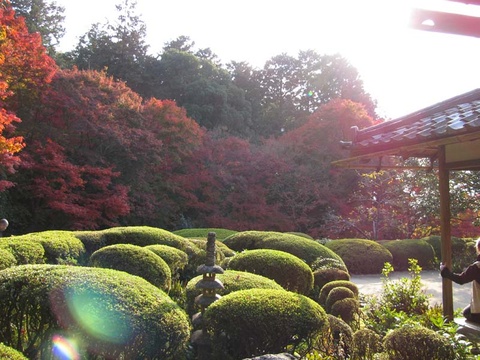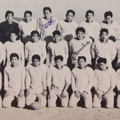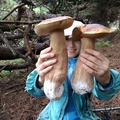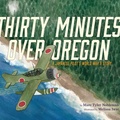When I tell people about my year in Japan, I tell the best parts. The unexpected shrines in the middle of city blocks. The chestnut cakes that sweetened bitter tea. The wooden temples that stood so tall I could bend my neck back and barely see the place where they disappeared into the fog. There were so many best parts.
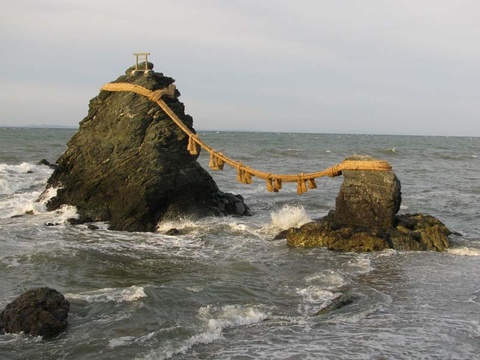
Famous Shinto site Meoto Iwa, the Wedded Rocks, off the coast of Wakayama. (Photo taken by the author)
I can’t think about Japan without romanticizing it, imagining the streets swallowed up by one color or another: yellow gingko, pink cherry blossoms, red maples, white snow. Jizo statues stand by the road, their eyes and mouths closed in a peaceful bliss, toys and tangerines piled in offering by their feet. Steam rises up from the drainage ditches under the sidewalks, turning the air musty and at the same time sweet. Yesterday I caught a similar smell on a bridge over the L.A. River and like those stone statues I closed my eyes. I inhaled and I ached.
Those romantic visions of a mystical old world are accurate, but they are also incomplete, buffed and filled in again by my own partial longing. I went to Japan for the first time as an infant, then as a toddler, then never again until college. My mother, who came to the U.S. in her 20s, only visited a few times more, including once each when her parents died. Meanwhile in the Midwest, I ate rice, spoke a little Japanese, fell asleep to melancholy lullabies about missing mothers and chestnut trees. I held a Japanese passport, but I knew nothing about Japan.
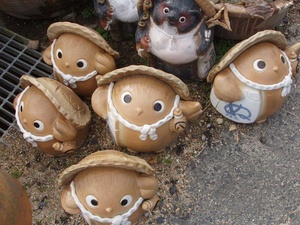
Fukukitaro (a cross between tanuki and fukuro, or owls) at a clay shop in Shigaraki. (Photo taken by the author)
When I took my first Japanese class in college, the magnetic familiarity of the syllables—no longer my private family language but one spoken out loud in public for the first time—both enlivened and embarrassed me. The more I learned, the more I found that I’d always needed to learn, that I’d always cared (and cared ferociously) about my heritage. As I began to fill a hole, I opened it deeper too: I’d never be fluent without serious effort; I’d never be both Japanese and American—and I mean with my feet on the ground and my heart in the collective consciousness. Whatever anyone insists, you can’t be both that way.
I saw that I could either dive into the learning process without fear or I could shrink back. So I dove in. I lived in Japan and saw all those best parts: the colors and the smells and the ragged Pacific coastline. I met my long-lost uncle and the cousins I hadn’t known existed. I burned incense at my grandparents’ grave. I explored the island where my ancestors lived more than a hundred years ago, where the Turkish ship crashed, where the sailors were carried ashore, where the European blood entered the gene pool to give my mother her light brown eyes.
My secret shame was that I wanted to go home. I could blame this on so many things: the awkwardness of life with a host family, a boyfriend on another continent, my half-Japanese heart and all-white face. In fact, I loved Japan so much that every disappointment reverberated and every joy hurt more. Everything I loved I wanted to keep: the strange and innumerable Shinto gods, the round taste of green tea, the streetlights on the river where we drank our cheap beer. To remember or photograph or journal wasn’t enough. I wanted some physical sign—like the click of a gas cap—to tell me I’d internalized it all for good, that the experiences spilling over me every day were somehow being caught.
I know now that I expected too much—and despite this awareness I’m sure I’ll continue to expect too much of Japan. In the face of every statue, the curve of every street, I’ll hope to understand the country that made my mother, and by making her made me.
* This article was originally published in The Rafu Shimpo on February 28, 2014.
© 2014 Mia Nakaji Monnier


